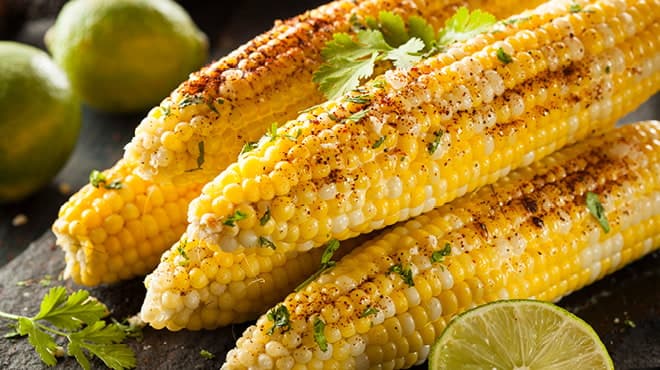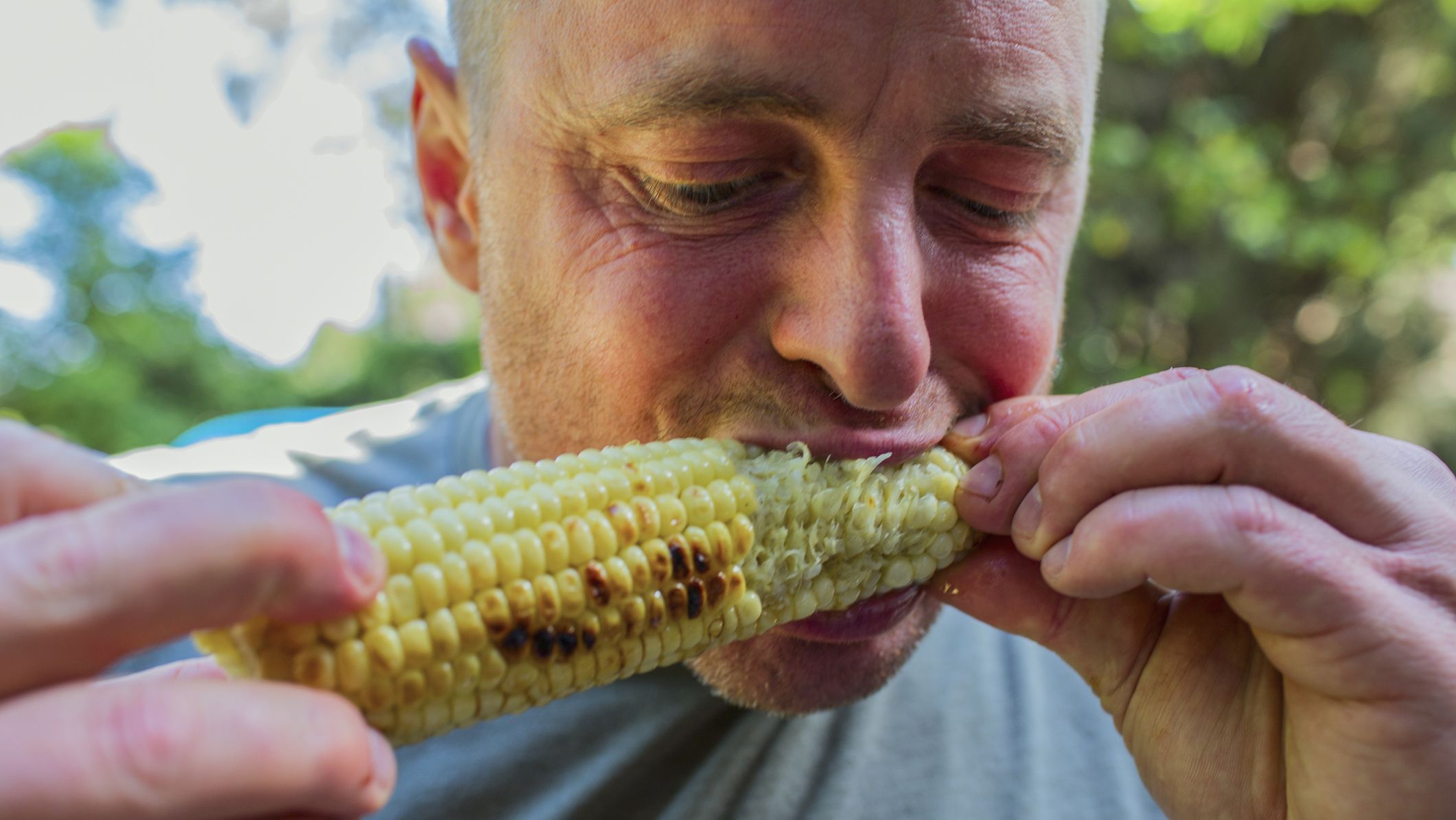Thinking about adding corn to your diet but worried about weight? Good news: corn can actually fit well into a weight loss plan. It’s not just tasty; it also comes with fiber and vitamins that help you feel full and energized. The key is to enjoy corn in moderation and as part of a varied diet. Whether you love fresh corn, popcorn, or corn in your favorite dishes, it’s all about balance. In this post, we’ll find out how corn can help with weight loss, the best ways to eat it, and tips to keep it healthy.

Contents
- 1 Is Corn Good for Weight Loss?
- 1.1 1. Moderate Calories:
- 1.2 2. High in Fiber:
- 1.3 3. Whole Grain Benefits:
- 1.4 4. Nutrient-Rich:
- 1.5 5. Antioxidant Content:
- 1.6 6. Versatile Ingredient:
- 1.7 7. Gluten-Free:
- 1.8 8. Provides Energy:
- 1.9 9. Low Fat:
- 1.10 10. Supports Digestion:
- 1.11 11. Stabilizes Blood Sugar:
- 1.12 12. Satisfying Snack:
- 1.13 13. Hydration:
- 2 Is Corn High In Calories?
- 3 Frequently Asked Questions:
Is Corn Good for Weight Loss?
Corn can be a nutritious component of a weight loss diet when consumed properly. Here are 13 detailed points on how corn supports weight management:
1. Moderate Calories:
Corn offers a moderate calorie count, which, when portion-controlled, can fit into a weight loss diet without tipping the calorie scale.
2. High in Fiber:
With a good amount of dietary fiber, corn helps promote satiety. This feeling of fullness can prevent overeating and snacking on higher-calorie foods, aiding in weight control.
3. Whole Grain Benefits:
Being a whole grain, corn contributes to a healthy diet, supporting weight loss. Whole grains are linked to better weight management compared to diets high in refined grains.
4. Nutrient-Rich:
Corn is packed with essential nutrients like B vitamins, magnesium, and phosphorus, supporting overall health. A nutrient-rich diet can improve metabolism and aid in weight loss.
5. Antioxidant Content:
The antioxidants in corn, such as lutein and zeaxanthin, protect against oxidative stress and may support a healthy metabolic rate, indirectly influencing weight management.

6. Versatile Ingredient:
Corn’s versatility makes it easy to incorporate into a balanced diet, from salads to soups, which can help maintain diet variety and adherence to a weight loss plan.
7. Gluten-Free:
As a gluten-free grain, corn is a great carbohydrate source for those with gluten intolerance, helping to diversify the diet without causing inflammation or digestive issues.
8. Provides Energy:
The carbohydrates in corn supply energy for physical activities. Engaging in regular exercise is crucial for burning calories and successful weight loss.
9. Low Fat:
Naturally low in fat, corn can be a part of a low-fat diet, which is beneficial for those looking to reduce calorie intake from fats.
10. Supports Digestion:
The fiber in corn not only aids in feeling full but also supports digestive health. A well-functioning digestive system is vital for effective weight management.
11. Stabilizes Blood Sugar:
Though it has carbohydrates, pairing corn with proteins or fats can help stabilize blood sugar levels, reducing cravings and aiding in weight management.
12. Satisfying Snack:
Popcorn, a whole grain form of corn, can be a low-calorie, satisfying snack when air-popped and minimally seasoned, perfect for weight loss diets.
13. Hydration:
Corn’s high water content, particularly in fresh varieties, contributes to hydration, which is essential for metabolism and can help control appetite.
Is Corn High In Calories?
When it comes to weight loss, one of the common concerns surrounding corn is its calorie content. There is a misconception that corn is high in calories and therefore should be avoided. However, the truth is that the calorie content of corn can vary depending on how it is prepared and consumed.

1. Calorie Content of Corn:
- One cup of cooked corn contains approximately 125 calories. This is considered moderate in terms of calorie content and can be easily incorporated into a balanced diet for weight loss.
- Comparatively, white rice contains around 205 calories per cup, while whole wheat bread has approximately 100 calories per slice. Therefore, corn can be a relatively lower-calorie option when compared to other staple foods.
2. Nutritional Composition:
- Apart from its calorie content, it’s also important to consider the nutritional composition of corn. Corn is rich in dietary fiber, which can help promote feelings of satiety and support healthy weight loss.
- Additionally, corn contains essential vitamins and minerals such as vitamin C, folate, and magnesium. These nutrients are important for overall health and can contribute to a well-rounded weight loss diet.
- The way corn is prepared and cooked can significantly impact its calorie content. For instance, boiled or grilled corn without added fats or sugars will have fewer calories compared to fried or buttered corn.
- It’s worth noting that processed corn products, such as corn chips or corn syrup, can be high in calories and additives. Opting for whole corn sources, such as fresh or frozen corn, can maximize the nutritional benefits without adding unnecessary calories.
Frequently Asked Questions:
Is corn better than rice for weight loss?
No, corn and rice have different nutritional profiles. Corn is lower in calories and carbohydrates but higher in sugars and protein compared to rice. Both can be included in a healthy weight loss diet depending on individual preferences and goals.
What is the healthiest corn to eat?
Whole-grain corn is the healthiest option. It retains all its nutrients and is available in various forms like fresh corn on the cob, cooked corn, or popcorn. These whole-food choices provide the maximum benefits of corn.
How much corn should I eat a day for weight loss?
To lose weight, limit your corn intake to about one cup or 160 to 170 grams per day. While corn is low in calories and high in fiber, its high-carbohydrate content can lead to weight gain if consumed in excess.

Hello, I’m Ravindra. Over the years, I’ve immersed myself deeply into the world of fitness and health, transforming both my body and mind. Writing has allowed me to share my journey, insights, and expertise with those just starting out and seasoned fitness enthusiasts alike. Beyond just routines and diets, I believe in inspiring others to adopt a holistic approach to well-being.
